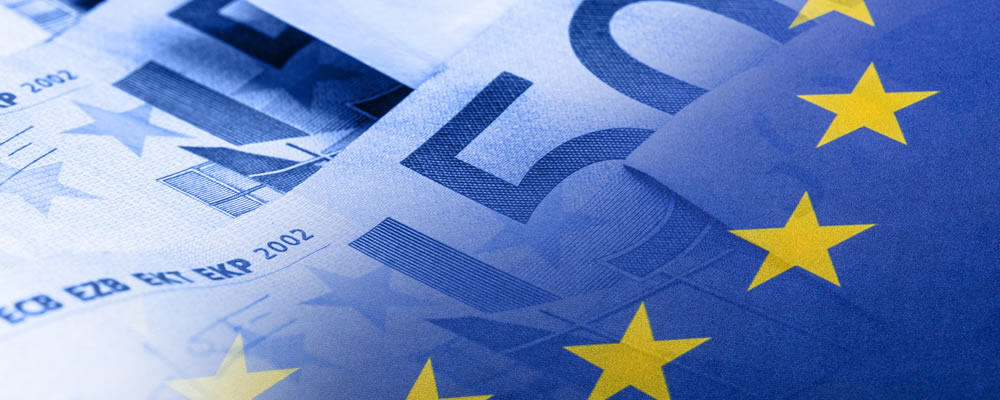Slowdown in Annual Eurozone GDP Causes EUR/GBP Exchange Rate Losses
The Euro (EUR) has made a minor loss against the Pound (GBP) today, hitting an exchange rate of £0.8929.
This dip in the EUR/GBP exchange rate is down to Q2 Eurozone GDP growth rate figures; the overall perception is that these results have been disappointing.
Earlier German figures showed a faster pace of quarterly economic growth but an annual slowdown, while yearly Eurozone readings have revealed slowing growth.
The quartly Eurozone GDP reading showed resilience by remaining at 0.4% instead of falling to 0.3% as forecast, but this has failed to impress Euro traders.
Pound to Euro (GBP/EUR) Exchange Rate Rises on Historic Unemployment Rate Drop
The Pound (GBP) has made a small advance against the Euro (EUR) today, trading at a level of €1.1194.
This appreciation comes on the news that the UK unemployment rate fell to its lowest level since 1975 in June this year, dropping from 4.2% to 4%.
Highlighting why this is good news for the UK economy, BBC Economics Correspondent Andy Verity says:
‘Economists have thought for decades that if unemployment keeps getting lower, wages will improve.
‘For years, wages [have been] sagging even as the unemployment rate hits fresh lows. Recently, reality’s looked just a little more willing to conform to economic predictions.
‘Pay rises (excluding bonuses) averaged 2.7% in the year to the end of June – higher than the official inflation number of 2.4% (but lower than the 3.4% rise in the old-style Retail Prices Index used to calculate rises in rail fares).’
Essentially, there could be a faster pace of wage growth on the back of lower unemployment, which would signify a stronger UK economy.
Euro to Pound Exchange Rate Forecast: Is EUR/GBP Volatility ahead on UK Inflation Rate Data?
The Euro (EUR) could rise against the Pound (GBP) in the near-future when UK inflation rate data comes out on Wednesday morning.
The UK ecostats are predicted to show higher levels of annual inflation, from 2.4% to 2.5%. This would put the inflation rate on par with June’s levels of UK wage growth.
Such a result could have two effects on the Pound, which will ultimately affect the EUR/GBP exchange rate tomorrow morning.
On the negative side, GBP traders could see this as a sign that UK households may face a wage squeeze in the future; such a conclusion could damage GBP/EUR trading.
On the other hand, if higher inflation is equated with higher odds of a Bank of England (BoE) interest rate hike then the GBP/EUR exchange rate could rise sharply.
Beyond Wednesday’s UK inflation rate data, the Euro might be affected by the afternoon’s speech from Bundesbank board member Johannes Beermann.
Mr Beermann will be discussing German gold reserves, but could affect demand for the Euro by commenting on the ongoing Turkish economic crisis.
If Mr Beermann suggests that Eurozone banks are not in danger from the Turkish economic meltdown, then the Euro could recover and rise against the Pound.



